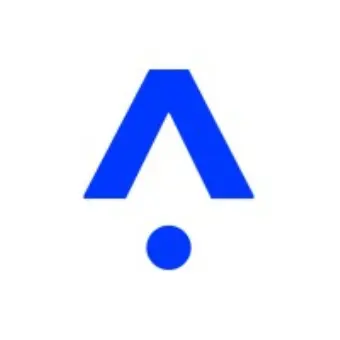Verification Test Engineer

Applied Intuition
About Applied Intuition
Applied Intuition is the vehicle intelligence company that accelerates the global adoption of safe, AI-driven machines. Founded in 2017, Applied Intuition delivers the toolchain, Vehicle OS, and autonomy stacks to help customers build intelligent vehicles and shorten time to market. Eighteen of the top 20 global automakers and major programs across the Department of Defense trust Applied Intuition's solutions to deliver vehicle intelligence. Applied Intuition services the automotive, defense, trucking, construction, mining, and agriculture industries and is headquartered in Mountain View, CA, with offices in Washington, D.C., San Diego, CA, Ft. Walton Beach, FL, Ann Arbor, MI, London, Stuttgart, Munich, Stockholm, Seoul, and Tokyo. Learn more at appliedintuition.com.
We are an in-office company, and our expectation is that employees primarily work from their Applied Intuition office 5 days a week. However, we also recognize the importance of flexibility and trust our employees to manage their schedules responsibly. This may include occasional remote work, starting the day with morning meetings from home before heading to the office, or leaving earlier when needed to accommodate family commitments. (Note: For EpiSci job openings, fully remote work will be considered by exception.)
About the role
- Understand system requirements and define appropriate platform independent test cases.
- Design test cases and procedures to ensure comprehensive coverage.
- Conduct functional, non-functional, regression, and performance testing in simulation and on-road.
- Analyze test results, identify issues, and work with engineering teams to troubleshoot and resolve problems, and provide release recommendations.
- Create verification and validation plans based on product requirements.
- Analyze the source code for unit/integration test development and execution.
- Organize and execute field testing to test autonomy software on-vehicle.
- Responsible for HIL strategy and execution.
- Use Python and LabVIEW to automate the development and execution of requirement-based tests.
- Develop and deploy models on the dSPACE SCALEXIO controller.
- Develop CAN Communication gateway using CAPL scripting.
- Analyze and collect CAN logs during test execution using SPY CAN monitor.
We're looking for someone who has:
- A Bachelor’s Degree in Mechanical Engineering, Electrical Engineering, Electronics Engineering, or similar, or foreign equivalent
- At least 2 years of experience in a verification test engineering or systems test engineering role with an autonomous vehicle company
- 12 months of experience using CarHIL (Car Hardware in Loop), SPY CAN monitor, dSPACE SCALEXIO, Python, LabVIEW, and CAPL scripting
The salary range for this position is $94,162 - $255,000 per year USD annually.
Please apply on this page https://tinyurl.com/AppliedJob36.
#LI-DNI
Don’t meet every single requirement? If you’re excited about this role but your past experience doesn’t align perfectly with every qualification in the job description, we encourage you to apply anyway. You may be just the right candidate for this or other roles.
Applied Intuition is an equal opportunity employer and federal contractor or subcontractor. Consequently, the parties agree that, as applicable, they will abide by the requirements of 41 CFR 60-1.4(a), 41 CFR 60-300.5(a) and 41 CFR 60-741.5(a) and that these laws are incorporated herein by reference. These regulations prohibit discrimination against qualified individuals based on their status as protected veterans or individuals with disabilities, and prohibit discrimination against all individuals based on their race, color, religion, sex, sexual orientation, gender identity or national origin. These regulations require that covered prime contractors and subcontractors take affirmative action to employ and advance in employment individuals without regard to race, color, religion, sex, sexual orientation, gender identity, national origin, protected veteran status or disability. The parties also agree that, as applicable, they will abide by the requirements of Executive Order 13496 (29 CFR Part 471, Appendix A to Subpart A), relating to the notice of employee rights under federal labor laws.